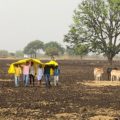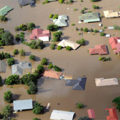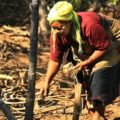Climate and disaster risk insurance in low income countries: Reflections on the importance of indicators and frameworks for monitoring performance and impact
How to effectively monitor and evaluate the use of climate and disaster risk insurance remains unclear. This paper reviews how these instruments are currently evaluated and finds a need for transparent monitoring and evaluation frameworks to enable greater scrutiny and to assist those funding, demanding or supplying insurance, with evidence from India and Africa.










